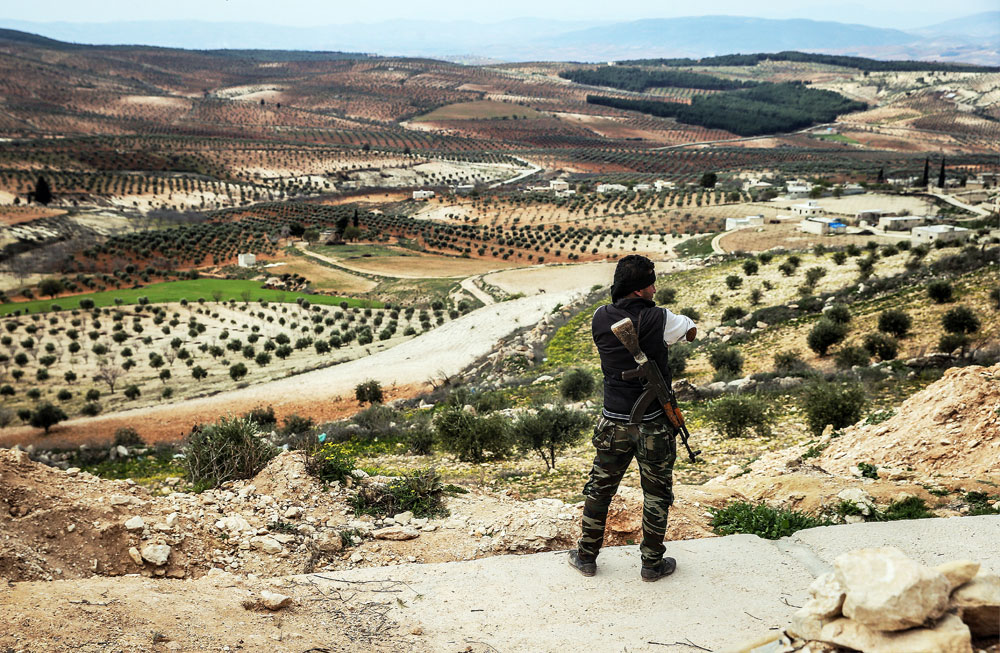
An armed Kurdish fighter surveys the area from an elevation near the town of Azaz on the Syrian-Turkish border.
Valery Sharifulin / TASSThe Turkish military continues to advance south in Syria. According to Turkish newspaper ‘Haber,’ Turkish units have stopped 11 km (7 miles) to the north of Manbij, (20 miles to the west of the Euphrates River).
The newspaper said the military is waiting for Kurdish detachments to leave the city. If they retreat, Turkey will be able to open a corridor to Aleppo for the Syrian opposition, said Butuhan Yasar, a Turkish specialist on the Middle East, in an interview with the Azerbaijani publication ‘Trend’.
The next target of Turkish operations, according to presidential spokesman Ibrahim Kalin, is Al-Bab, a large town halfway between Aleppo and the border town of Jarabulus, and an Islamic State stronghold in the area.
Kurdish troops are also aiming for Al-Bab in a bid to unite with the territories they control in the west of the country.
According to Kalin, Turkish President Recep Erdogan’s press secretary, their work is being complicated by Kurdish advances towards the liberated city of Jarabulus.
“We are no longer speaking of any deadline for the Kurds to retreat to the east bank of the Euphrates. We simply demand a retreat as soon as possible,” said Kalin.
Leonid Isayev, a senior lecturer at the department of political sciences at the Higher School of Economics in Moscow, said Al-Bab could become the scene of a serious confrontation between Turkey and the Kurds.
Russia condemns the Turkish operation but is refraining from criticizing Ankara too harshly, said Gumer Isayev, head of the St. Petersburg-based Centre of Contemporary Middle East Studies, adding that there is a certain degree of coordination between Russia and Turkey.
Isayev predicts that Turkey’s intervention will not change the overall balance of forces between the major powers taking part in the conflict – Russia and the United States.
“There are reports that Russia and Turkey have reached a number of agreements on where the Turkish troops and their allies should enter,” said Grigory Melamedov, an Orientalist.
He added that, in the province of Aleppo, the territory in question is the city of Al-Bab. “In Hama, the situation is more complicated. For the time being, there is no concrete border there,” said Melamedov.
Timur Akhmetov, a columnist with Russia Direct, cited Turkish Defence Minister Fikri Isik as saying that the operation had been agreed with the Russian, Iranian and even Syrian authorities.
It is hard to imagine that Moscow would have allowed Ankara to increase its influence in the region without demanding anything in return, argued Akhmetov, pointing out that Turkish officials appear to have changed their stance on Syrian President Bashar al-Assad.
“Turkey may consider al-Assad as a future intermediary,” Turkey’s Prime Minister Binali Yildirim said at the end of August. For the first time in the five-year conflict, Turkey is prepared to consider the current Syrian government as part of a future transition period.
First published in full in Russian by RBC Daily.
All rights reserved by Rossiyskaya Gazeta.
Subscribe
to our newsletter!
Get the week's best stories straight to your inbox